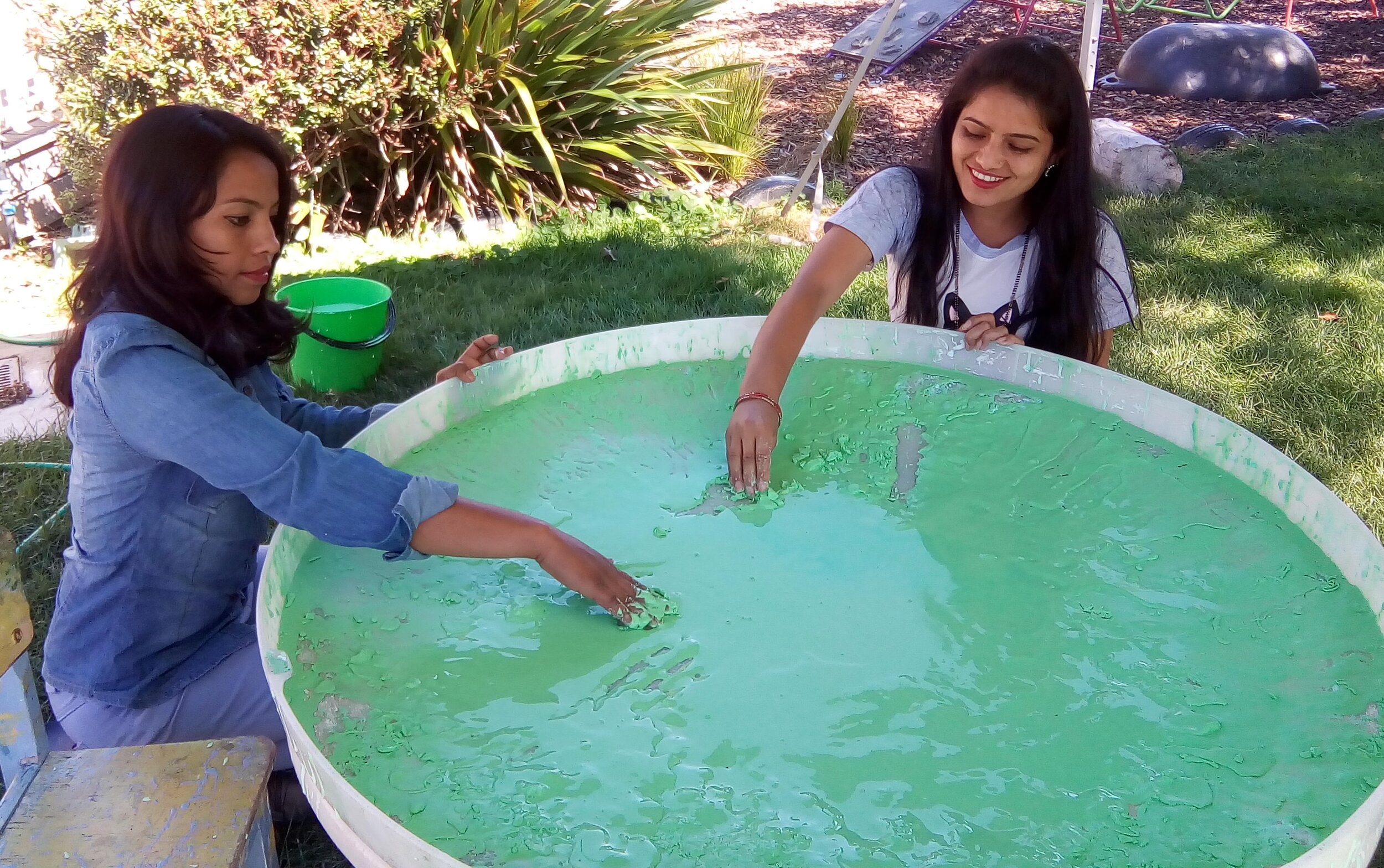Real change in early years education comes when the teacher builds good relationships with the children.
Children learn best when they are surrounded by quality relationships and respectful interactions. First Steps teacher training starts from the basics - the importance of the teacher-child relationship.
Feeling overwhelmed
Sadly, in rural Nepali village classrooms, many early years teacher just do not know where to start. Faced with a classroom of restless, bored young children, few resources and poor training, it is no surprise that these teachers feel frustrated and overwhelmed. It is normal to witness early years teachers raising their voice and constantly shouting and even hitting young children.
On the other extreme, some teachers completely disengage with the chaos of their classroom. We have observed situations where the teacher almost entirely ignores the young children, escaping mentally by spending time on their phone or actually physically escaping the classroom entirely, leaving the children unattended for hours.
These types of classrooms have poor teacher-child relationships and are not enjoyable environments for neither the teacher nor the child.
Start with good relationships
‘Teachers must value the importance of having good relationships with the children, if they don’t, they will have a lot of problems with behaviour later” explains First Steps Senior Trainer, Ranjana Giri. Traditional teacher training methods in Nepal focus on how to teach academic subjects but often do not provide guidance on how to build strong, trusting relationships with the children in the classroom.
First Steps teacher training starts with a course on relationship building because developing quality of student-teacher interactions is so important. “Learning really improves when the teacher invests time in building strong relationships first” says Ranjana.
Feeling safe improves learning
Building relationships is really important in an early years classroom. Young children need to feel safe and trust their teacher before their brains will relax and allow them to learn. When a teacher creates warm, nurturing relationships with children they pay more attention, their behaviour improves and the children develop a love of learning. Happy, relaxed children are more likely to step out of their comfort zone with their learning and extend themselves.
Building friendships
A warm, caring attitude from the teacher also spreads to the entire classroom. Children work together as a team towards common goals. Aggressive behaviours and negative attitudes decrease and there is an overall improvement in the classroom climate.
Teachers and parents notice children using kind words with each other. “Parents tell me that as soon as their child gets up in the morning, they want to come to school.” says Founding Director, Durga Aran. “So many parents come to us, telling us how their child’s behaviour has improved dramatically and as a result the whole family learns to be more respectful to one another. The knock on effect is fantastic!” says Durga.
Simple changes make huge differences
First Steps teachers learn how much their attitude affects the atmosphere of the classroom. From the moment the young child arrives at school they should be greeted by a happy, friendly teacher who gets down to their level, smiles and uses kind respectful language.
Teachers learns about positive ways to influence child behaviour such as different types of praise and how to use these effectively. They learn about behaviour modelling and the importance of the teacher demonstrating the behaviour she wants to see in the children.
First Steps teachers are also encouraged to build respectful relationships with the parents, colleagues and the wider community. They invite parents into the classroom, show them their children’s work on the walls and send work home.
In this way, rural Nepali parents begin to understand the need for education. This encourages them to support their children’s learning at home and instills a love of learning in the family. Children are then less likely to drop out of school later. These children will go on to become better educated parents, themselves.
Creating Team Spirit
Similarly when teachers feel supported by their colleagues, it is easier to share ideas, practice new activities and develop their professional skills. Team spirit encourages creativity and teachers feel more rewarded in their job.
Our First Steps teachers learn to thrive by developing strong, positive relationships with their young students. This creates a virtuous cycle of happy, enthusiastic children and happy, enthusiastic early years teachers.
Respectful, kind relationships are the first steps towards creating warm, nurturing learning environments for rural Nepali children.
To donate to the work of First Steps Himalaya click here. www.firststepshimalaya.org





















